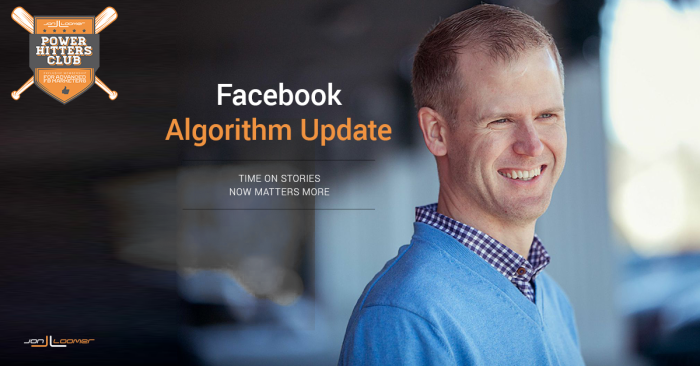
Facebook recently announced another news feed algorithm update, and this typically results in overreaction and chaos from marketers. While that still happened to a point, it’s been quieter than normal this time around.
Why? A combination of things. First, I think most of us are confused that this latest update is actually “new.” Second, it’s pretty hard to argue that the update is a bad thing (though some will try).
The Change
Facebook did some research and determined that just because a user didn’t comment, like and share a post doesn’t mean they don’t care about it. They could spend significant time on a post reading it without performing any social actions, and that should also tell Facebook that it’s something they want to see.
Going forward, time on a post will contribute to what is surfaced to users. Note, however, that this is not based on time thresholds applied universally. Facebook provided the example of a bad internet connection contributing to additional time to consume a post.
Facebook will now look at how long it took you to read a post and compare it to how long it typically takes. If it’s longer than normal, Facebook will assume this to be something you care about. If you scroll right by it, Facebook will assume it’s not that interesting to you.
Why It Matters
I found this odd because I’ve long assumed that Facebook considers time on a post when collecting signals from the user. I guess it’s possible they did, but now they are weighing it more heavily.
The main reason this matters is because this would seem to be a logical way to surface content to users that they want to see. We want the user experience to be as relevant as possible.
If the right signals are given to your content, your content should be surfaced to a more relevant audience. The better the user experience, the more time they spend on Facebook. And the more people and longer they are on Facebook, the better the advertising data and the more people you can reach with ads.
Don’t Assume The Worst
Let’s not get crazy with this. It’s not that big of a deal.
I saw some replies that think of specific scenarios that could confuse the algorithm. You start scrolling and are then distracted by a phone call or visitor. Will Facebook assume that means you liked that content?
First, I have to think Facebook is smarter than that. If your mouse stays in the same place for 10 minutes, I doubt Facebook interprets that as interest.
Second, let’s not make a big deal out of edge cases. How you react to a single post is not going to make much of an impact at all on your Facebook user experience. It simply contributes to the mounds of data you provide to Facebook via your activities.
When It Rolls Out
Facebook says it will start rolling out in the coming weeks. Not particularly specific, I know.
How It Impacts Pages
Facebook says they don’t expect this change to impact changes in a significant way. I don’t see any reason it would either.
But what I fear could happen (oh, it will at least to a point!) is that marketers will see this as another opportunity to game the algorithm. One would assume that posts with lots of text could encourage more reading. Or marketers could then see short posts as being bad because they can be consumed quickly.
I can foresee the potential of marketers scheming up ways to slow down the user — not necessarily with better content, but just content that trips up the user and makes them stick around longer than they would normally.
This could also increase the value of videos. Even when sound is off, videos uploaded to Facebook distract the user’s scrolling and get a high number of views beyond three seconds. Creating videos that keep the user’s attention with engaging actions or text were always a good idea, but could be more effective now.
What You Should Do
You should know what I’ll say here. I really don’t want you changing your strategy due to this change. It’s mostly a “well, duh, that makes sense” type of update.
Create content that your target audience wants to consume. Be interesting, educational and entertaining. Don’t be spammy.
Your Turn
How do you think this change impacts marketers?
Let me know in the comments below!
Category: PHC Blog Uncategorized
 PHC
PHC